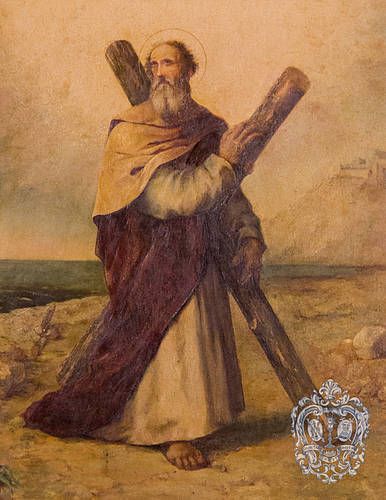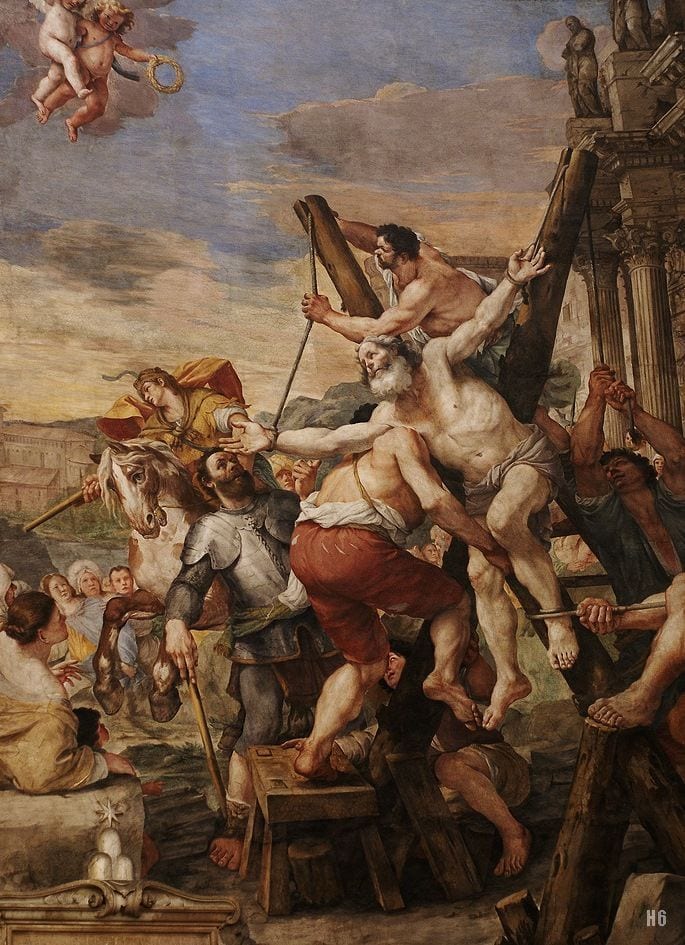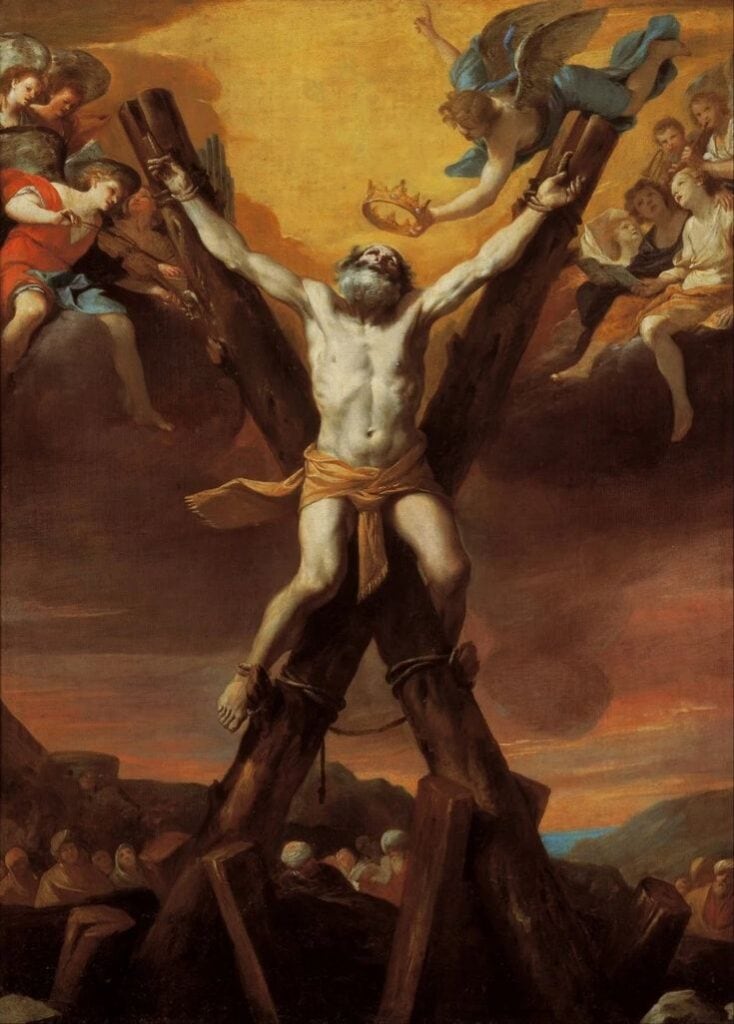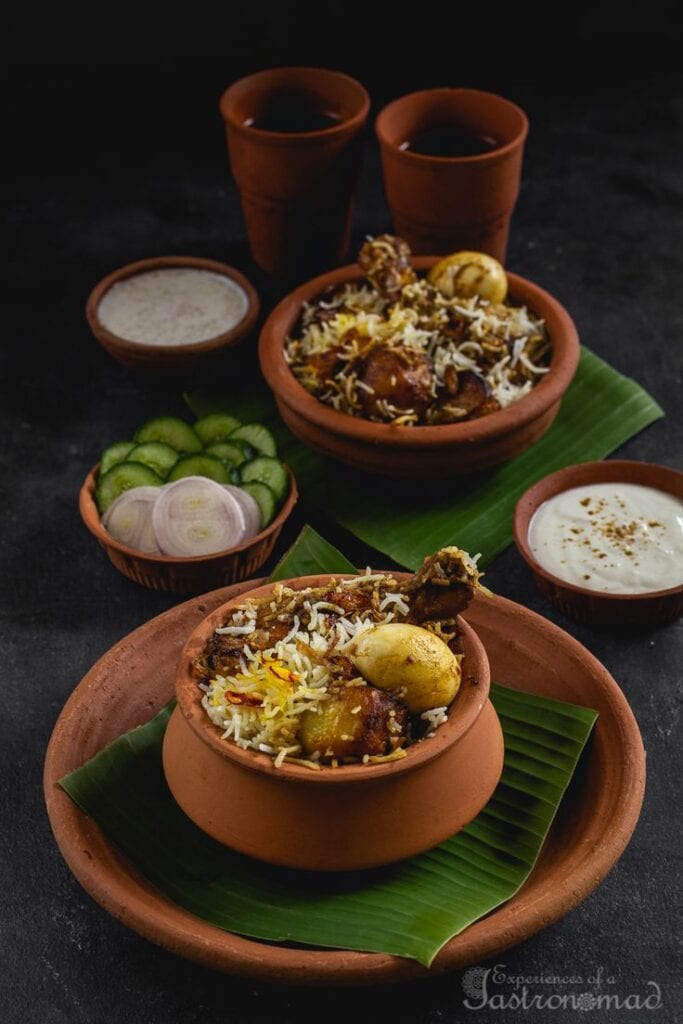St. George’s Day (Gergyovden), celebrated on May 6, is one of Bulgaria’s most cherished holidays. It beautifully weaves together Christian […]
St. Andrew’s Day

Celebration of St. Andrew the First-Called
On November 30th, the Orthodox Church celebrates St. Andrew the First-Called, one of Jesus Christ’s apostles. In Bulgaria, the day is known as Andreevden, blending Christian traditions with rich folklore customs. The holiday symbolizes the beginning of winter and the growth of the day.
History of the Holiday
St. Andrew, known as the First-Called, was the first apostle to follow Jesus. Born in Bethsaida, Galilee, he is the brother of St. Peter. St. Andrew is renowned for his devotion and missionary work. According to tradition, he preached in the lands surrounding the Black Sea and is considered the patron saint of Romania, Russia, and Scotland.
He was martyred on an X-shaped cross, later called the "St. Andrew’s Cross."


Meaning of the Name Andrew
The name Andrew derives from the Greek word “andreios”, meaning “brave” or “manly.” People named Andrew, Andrea, Adrian, Parvan, Hrabur, Silen, and their variants celebrate their name day on this date.
Traditions and Customs
Day of Growth
Day of Growth
Folk beliefs suggest that from this day, the day begins to "grow by a grain"—symbolized by grains like wheat or millet. The holiday represents the transition from autumn to winter.Bear’s Day
One popular legend tells of St. Andrew taming a bear after it ate his ox. He used the bear to plow his fields, earning the holiday the nickname "Bear’s Day." In this context, the bear symbolizes strength and protection.Fertility Rituals
A dish made of boiled grains, such as beans, corn, lentils, wheat, and peas, is prepared on Andreevden. Part of the dish is thrown into the fireplace with the phrase: "Take this, bear, boiled corn, so you don’t eat the raw one." This ritual aims to protect crops, livestock, and people.


Fortune-Telling
On the eve of St. Andrew’s Day, young women perform rituals to foresee their future husbands, and people make wishes, believing they will come true. Folk beliefs suggest that a quiet night predicts a mild winter, while a stormy one foretells harsh cold and blizzards.Work Prohibition
Women are advised not to perform heavy household chores to ensure prosperity and health in the coming year.Andreevden Table
The holiday table traditionally features dishes made from grains. Meals are cooked in clay pots to symbolize fertility and abundance. Alongside the boiled grains, bread made without meat products, respecting the Advent fast, is also common.



Interesting Facts About Andreevden
- In different parts of Bulgaria, unique customs are observed. For instance, in Teteven, dried fruits are added to the boiled grains.
- The bear, associated with the holiday, is also a prominent symbol in traditional Bulgarian mummers’ games, representing health and fertility.
- In Romania and Russia, St. Andrew is invoked for protection against evil, with crosses drawn on doors and windows.
Conclusion
St. Andrew's Day is a holiday that combines Christian and folk customs. It symbolizes man's strength, growth and connection with nature. Whether you celebrate it with a family meal or by observing traditions, St. Andrew's Day remains an occasion for joy and blessing.
